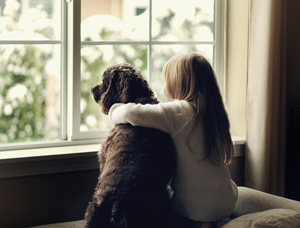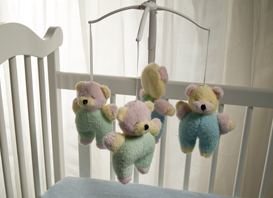Article by Bereavement Counsellor and Hypnotherapist Clare Gilsenan
Society often treats death as the final taboo, yet at some point all of us have to deal with the loss of someone we love. On the Hoffman Process, one of the most common issues we help with is unmourned loss because – in a society which admires a stiff upper lip – so few of us are allowed to fully express heartbreak when it happens. Clare Gilsenan has worked for many years as a Bereavement Therapist for both adults and children. Drawing also on training in Solution Focused Hypnotherapy, EFT, NLP and EMDR, she suggests ways to come to terms with grief and loss in a variety of circumstances, whether that’s your own or someone else’s.
 ‘Freddie, a young man in his 20s, had been living with continual self-blame since his mother’s suicide. On the night she killed herself he’d visited her at her home just a few hours before and they’d had a disagreement; in the morning he found her dead in bed from a drug overdose.
‘Freddie, a young man in his 20s, had been living with continual self-blame since his mother’s suicide. On the night she killed herself he’d visited her at her home just a few hours before and they’d had a disagreement; in the morning he found her dead in bed from a drug overdose.
After this shock Freddie’s life pretty much fell to pieces, as he felt guilty and responsible for his mother’s death. What if they hadn’t argued, would she still be alive today? He continued to punish himself by thinking he’d contributed to her suicide, and withdrew from anything that gave him pleasure. How could he continue to enjoy himself after the suffering his mother had gone through?
During my years of working with bereavement, I’ve met many lovely people at various stages of the grief cycle, all in very different circumstances. The one thing they shared was that they were struggling to live with their feelings of unresolved grief, guilt and underlying confusion. In many cases they’d suffered alone, unable to find support to help them understand what was a very normal reaction to the loss of a loved one.
For example, Mary, a lady in her 80s, was grieving the loss of her beautiful daughter who had died from cancer. Mary was feeling very depressed and unable to cope with the void in her life; she was desperately missing the weekly visits from her lovely vivacious daughter. Her older husband was supporting her the best he could, coaxing her to eat and get out of bed in the mornings but, like Freddie, the grief was complicated, and eventually they both needed outside support and help.
But who to turn to?
The solution came from family and friends. As both Freddie and Mary discovered, the natural process of grief can move forward much faster with trusted outside support which allows the loss of a loved one or close friend to be accepted rather than denied.
Phases of Grief
 At some stage in our life we all experience the loss of a loved one. The intensity of grief can impact so severely there’s a feeling that it will never end. This is perfectly natural. Phases of grief include shock, disbelief, distress, despair, acceptance and resolution until you finally feel ready and prepared to re-engage in the world.
At some stage in our life we all experience the loss of a loved one. The intensity of grief can impact so severely there’s a feeling that it will never end. This is perfectly natural. Phases of grief include shock, disbelief, distress, despair, acceptance and resolution until you finally feel ready and prepared to re-engage in the world.
The grieving process can also be delayed by a sense of denial and the feeling that it’s just a dream and not a reality. This is a very natural response so it’s important to seek help, talk, and to have a space to release pent up emotions. There are no protocols on how to treat people who have suffered loss. It’s not something that we’re taught how to handle or, in some cases, are even willing to engage in. We can be left feeling inadequate, unsure how to offer support or even what to say that would bring comfort. Help with organising practicalities such as the funeral to take the pressure off those left coping with this highly emotional situation is usually gratefully received.
When a Parent Passes
Although it’s expected for a parent to die before us, many of us are surprised at the complexity and depth of our grief when this happens. You might feel anger, someone else might feel sad, and that’s how grief works. There’s no ‘right’ way. These feelings can be surprising or even frightening; they can appear out of the blue causing confusion and distress.
A loss impacts families and friends in different ways. The spirit of ‘let’s pull together’ at a difficult time can surface surprisingly quickly and unite those affected. On the other hand it can also reignite old sibling rivalries and feelings of jealousy. Practical issues that need to be sorted can either cause problems or bring relatives together. Relationships with a surviving parent can also be affected. They may feel they have the sole right to grieving for their beloved, making it difficult for the children to express their feelings.
Helping Children Say Goodbye
 Recent research by Dr Colin Murray Parkes shows how the robustness and security we felt as a child persists as an adult. This can affect how we react to subsequent losses such as bereavements in adult life. If a child is young when their parent passes they will need truth, support and encouragement to talk about and express their innermost thoughts and feelings.
Recent research by Dr Colin Murray Parkes shows how the robustness and security we felt as a child persists as an adult. This can affect how we react to subsequent losses such as bereavements in adult life. If a child is young when their parent passes they will need truth, support and encouragement to talk about and express their innermost thoughts and feelings.
Different activities can help both the parent and child to work through their grief and connect with each other emotionally throughout the grieving process. For example it can be better to allow the child to come to the funeral with support of close family and friends rather than to exclude them, but this has to be an individual choice. Practical actions such as creating a memory jar, a box with mementoes, or pictures of the deceased around the house can allow a child to connect with their emotions and be open about their feelings, whilst keeping the memory of the parent alive. There are some excellent books that explain the grieving process in depth which will help a child to identify and understand their grief. One example is A Child’s Grief: Supporting a Child When Someone in Their Family Has Died by Di Stubbs.
Terminal Illness
With a terminal illness, many people will feel they’ve already said goodbye to their loved one long before their death. This is often a coping defence to prepare for the inevitable. The grieving process starts far earlier compared to a sudden unexpected death but the usual emotions such as guilt, blame, anger and confusion are still bubbling away under the surface and need dealing with in a compassionate, understanding way.
 Stillbirth and Miscarriage
Stillbirth and Miscarriage
 Dealing with Suicide
Dealing with Suicide
When someone we love commits suicide, grieving can be more complex and particularly difficult to resolve. Contrary to popular belief, suicide is rarely an impulse. Prior to taking their life, individuals can appear calm and less agitated as if they have found relief in a solution to end their pain. One of the natural responses to suicide is anger. This can be directed in all sorts of ways, often towards the person who took their life and the surviving family members.
Remember that no one is the sole influencer in another’s life. Unfortunately suicide can evoke feelings of shame and social isolation due to the stigma that can still attach to it. If you’ve experienced the trauma of a loved one’s suicide you may think that life will never return to normal. Be assured that it will, but it will take time. Finding someone to talk to and asking as many questions as you need is an important part of moving on and letting go.
Acceptance and Healing
It’s experiencing and accepting grief – not avoiding it – that finally heals us. Although everyone mourns in their own way, there are common stages that can be identified over time; withdrawal from the outside world, acceptance of the loss, learning to live again and finally surviving and learning how to enjoy life once more and relishing all that it has to offer.
Poignant memories and anniversaries will always be difficult but in time we can lovingly and peacefully remember our loss with fond memories of happy times spent together. Finally, please remember; don’t be afraid to talk with those who are experiencing loss, particularly as they can often view themselves as a burden on friends and family and may be worried about opening up.
Suggestions For Coming to Terms With Loss
When it’s your loss:
- Ask for flexibility and understanding at work
- Remember that anger, guilt, overwhelming sadness, depression and denial are all natural emotional responses to grief, there’s no particular order in the way these can surface
- Just like an individual’s fingerprint, everyone has their own way of handling grief.
- Talk about your loss and you’ll be surprised at the support there is
- Sit quietly with your feelings. Accept them as part of being human; without them we’d be robots
- Seek support from a bereavement counsellor if you feel life isn’t moving forward after six months
- Allow around six months for the normal physical and emotional stages of grief to be processed
- Plant a shrub or tree in memory of your loved one
- Feel appreciation for all the positive things that your loved one brought into your life
How to help someone who has been bereaved: 
- Offer practical support such as dropping off a meal, shopping, helping with thank you letters and emails
- As an employer, give the employee support until they feel able to return to work
- If the parent/s of young children have died, offer to take the children out to give their carers a break
- Let the person talk without feeling you have to ‘fix’ them.
- Listen with an open and receptive mind
- Allow children to feel their emotions
- Do not avoid the person or the subject of their loss, so it becomes ‘the elephant in the room’
- Contact them at difficult times such as birthdays and anniversaries
- Don’t tell them that you understand how they feel, as grief is a very personal experience
- Don’t be alarmed if the bereaved person has sudden mood swings such as anger then sadness; this is normal
Suggested Reading
Saying Goodbye by Clare Selley & Deborah Butler
Websites
The bereavement charity cruse.org.uk offers lots of advice on its website, some of which is very practical.
The UK Care Guide also has a list of practical tips and a useful infographic outlining steps to take in the event of a bereavement. You can find that here





 Sign up to receive monthly newsletters from Hoffman
Sign up to receive monthly newsletters from Hoffman